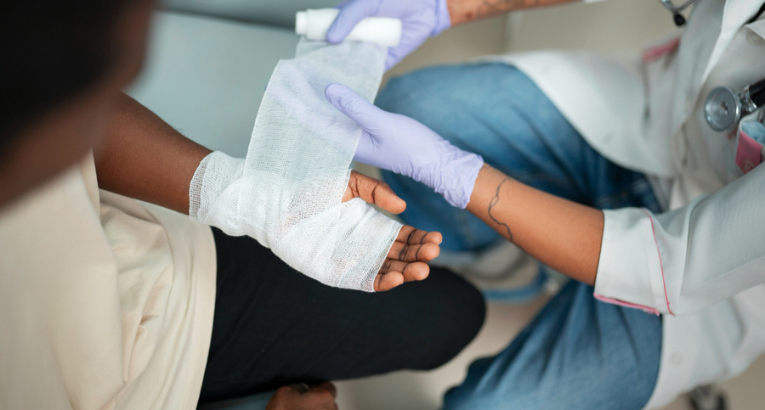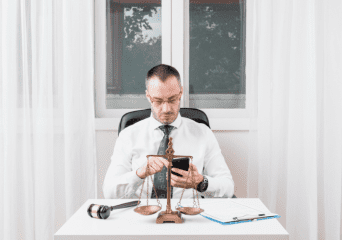
Table Of Contents
- Understanding the Importance of Evidence
- Documenting the Incident
- Taking Photographs
- Gathering Witness Information
- Obtaining Medical Records
- Keeping a Personal Journal
- Seeking Expert Opinions
- Reviewing Security Footage
- Compiling Financial Records
- Staying Organized
- Consulting Legal Professionals
- Ensuring Timeliness
- Understanding Privacy Concerns
- Conclusion
How to Gather Evidence for Your Personal Injury Case
Houston’s a big, busy place. Traffic, crowds, nonstop movement—you name it. And with all that going on, accidents happen. Car wrecks, slip-and-falls, workplace mishaps… you never really see them coming. Suddenly you’re hurt, dealing with stress and medical bills, wondering what to even do first.
Here’s the thing: evidence. Having it (and having enough of it) can make or break your claim. Notes, pictures, receipts, witnesses—it all adds up. The stronger your proof, the better chance you’ve got. And if it feels overwhelming? The Insurance Outlaw personal injury lawyer can step in and guide you through, making sure nothing important slips through the cracks.
Understanding the Importance of Evidence
In these cases, evidence isn’t extra—it’s everything. It backs up your story and shows what really happened. Without it, you’re stuck with “my word against theirs,” and that rarely ends well.
Documenting the Incident
Don’t wait. As soon as you can, write it all down. Time, location, what led up to it, how it happened. Even tiny details you think don’t matter—later, they might. And if you’ve got something physical (a broken shoe, torn clothing, whatever), keep it. Don’t toss it in the trash.
Taking Photographs
Pictures freeze the scene in a way memory can’t. Snap the cars, the floor you slipped on, your injuries, all of it. Different angles help. You don’t need to be a pro—just capture what’s there before it changes.
Gathering Witness Information
If someone saw what went down, talk to them. Get their name and number. People forget details fast, and having a neutral voice to back you up could be a lifesaver later.
Obtaining Medical Records
Doctors’ notes and hospital reports show the link between the accident and your injuries. Every visit, every prescription, every scan—make sure it’s documented. Collect copies. Don’t assume the clinic will keep perfect records for you.
Keeping a Personal Journal
Sounds a bit odd, but keep a simple diary. Write about pain, sleep issues, missed work, how it’s messing with your day-to-day. Juries and adjusters connect with real human stories, not just numbers on paper.
Seeking Expert Opinions
Sometimes you’ll need specialists. Maybe a doctor explaining long-term effects, or an accident reconstruction pro showing how it happened. Experts can turn complicated details into clear explanations that back up your claim.
Reviewing Security Footage
We live in a world of cameras. Stores, parking lots, even random street corners. If your accident was caught on tape, grab it fast. Most systems wipe recordings after days or weeks. Once it’s gone, it’s gone.
Compiling Financial Records
Accidents hit your wallet too. Save every receipt, from ER bills to over-the-counter meds. Keep proof of lost income if you couldn’t work. Add it all together—it paints a fuller picture of the financial damage.
Staying Organized
Here’s the not-so-exciting part: organization. Make folders. Use a binder. Or go digital if that’s easier. Doesn’t matter how you do it, just don’t let the evidence get scattered. Nothing worse than knowing you had a key document and not being able to find it.
Consulting Legal Professionals
Most people don’t know exactly what counts as solid proof—and that’s normal. Lawyers deal with this every day. A seasoned personal injury attorney knows what to collect, what not to bother with, and how to present it. That’s why leaning on their experience can save you from missing something critical.
Ensuring Timeliness
You can’t drag your feet. Evidence disappears. Memories fade. And on top of that, the law puts deadlines on filing claims. Miss those? Case over. Moving quickly isn’t just smart—it’s required.
Understanding Privacy Concerns
Don’t cross lines while gathering info. Evidence has to be legal to hold up in court. Respect privacy, don’t try shady stuff, and keep it clean. Otherwise, you risk having it all thrown out.
Read Also: 9 Common Misconceptions About Personal Injury Law Debunked By Attorneys
Conclusion
Building a personal injury case isn’t easy, but evidence is your foundation. Photos, records, receipts, journals—piece by piece, it strengthens your claim. And with The Insurance Outlaw personal injury lawyer guiding you, you’ll have someone making sure nothing falls through the cracks. At the end of the day, thorough preparation gives you the best shot at a fair outcome.









